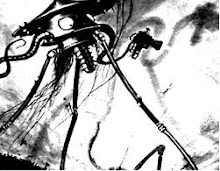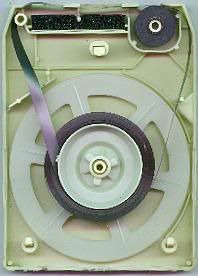Penny Arcade's DRM Discussion
I wrote before about part one of Penny Arcade's "The Origin of the CD-Key" series, and I agree with much of what was said in that post. Crecente's post did a good job highlighting what essentially most DRM proponents are ignoring -- that DRM is a flawed form of encryption. All DRM schemes give away all the tools needed to crack them -- for it is necessary to do so if content providers want the content to be useful to legitimate customers. Buyers have to be able to decode the DRM in order to use the content. In doing so, any knowledgeable party will be able to eventually crack any form of DRM imaginable.
Part two was posted last week, and it amounts to a "so what?" argument. Author Chris Remo acknowledges that DRM doesn't work, but also argues that it's no big deal. For example, he argues that it doesn't matter if publishers stop supporting games that require online activation because users can simply find the hacker's crack to play the game. Except, Mr. Remo, it does matter. For one, the described practice is against the law, according to the DMCA. Even if an individual owns the content, the DMCA makes it illegal to bypass digital copy-protection. Secondly, legitimate users should not have to resort to illegal practices to get their content to work. Finally, Remo's suggestion does not address DRM's encroachment on the First-Sale Doctrine. Many of the new DRM schemes effectively kill the second-hand market by requiring activations to be tied to an account and limiting the number of installations.
Part three, posted yesterday, brings the discussion back to a level of reasonableness. Author Daniel James makes several salient points about the nature of digital content and the ultimate effects of DRM. James hints at the concept that copying is a integral part of software, and because of that, is it ultimately futile to try to limit copying. James also hints at the important concept of software being "open." He argues for all software being shareware, and then letting the market reward the best software. This is only a step away from open source software, which would arguably create a boon in innovation by giving more users access to the innards of software. By allowing anyone to improve upon the software, we end up with a better product in the end. Finally, James hits on the concept that DRM really only hurts legitimate customers. The trend towards increasingly draconian DRM is only driving away potential buyers, while doing nothing to stop rampant file-sharing.
Overall, Penny Arcade's "The Origin of the CD-Key" is a good back and forth discussion of DRM and computer software, and I recommend everyone to read all three parts.



No comments:
Post a Comment